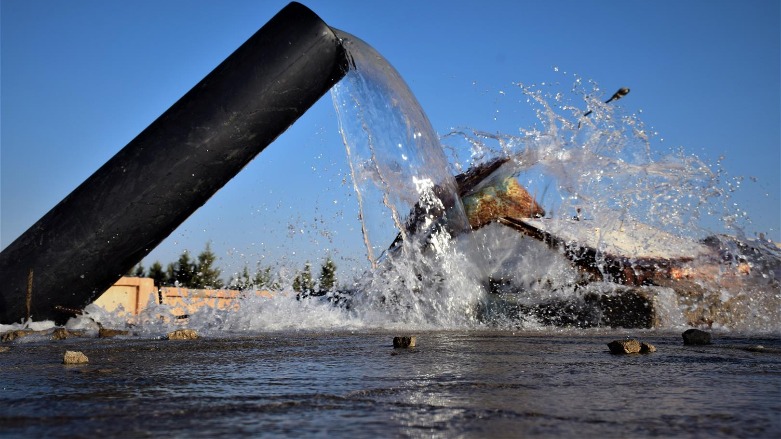UN relief head says water cut again to half a million people in northeast Syria

ERBIL (Kurdistan 24) – Mark Lowcock, the United Nations Under-Secretary-General for Humanitarian Affairs, told UN member states that there needs to be a sustainable solution to keep water flowing to northeastern Syria after the supply was cut again by Turkish-backed groups.
The Alouk water station is near the border town of Ras al-Ain (Serekaniye), which Turkey and its militant proxies took over in October 2019 during Ankara’s so-called Peace Spring Operation.
Since then, Turkish-backed groups have regularly cut the water flow from the facility, affecting an estimated 500,000 people in Hasakah city and nearby communities. Turkey has denied it was responsible for the cutting of the water.
“I want to update you on the situation at the Alouk water station. The water supply has again been interrupted almost consistently for the past two weeks. That affects close to half a million people in al-Hasakeh, including in al-Hol camp,” Lowcock said on Wednesday.
“The UN has now recorded more than 20 of these interruptions over the last year,” he added.
He added that humanitarian agencies are trucking more than 3,000 cubic meters of water every day to the area. “But this is not enough to meet people’s essential needs, particularly as the area battles, like many other parts of Syria, with increasing numbers of COVID cases.”
“So I again call for a sustainable solution to keep water flowing at Alouk,” Lowcock said. “Any solution must include safe and regular access for technical teams to the station and to the electrical installations that it relies on.”
Institutions affiliated with the Kurdish-led Autonomous Administration of North and East Syria (AANES) also accused Turkey of cutting water to the Euphrates river in northeast Syria.
"Turkish-backed militias near Serekaniye are diverting electricity from the mains connecting Derbasiyah power station (under AANES control) to Alouk water pumping station (in Turkish-occupied territory but nevertheless providing Hesekeh and surroundings with water), forcing Alouk to operate at minimum capacity and inevitably leading to critical water shortages in the areas it serves," Sasha Hoffman, a Syria-based researcher at the Rojava Information Center (RIC), told Kurdistan 24.
The Energy and Communications Office of the Jazira region said Thursday it will reduce the number of electricity hours to eight, blaming Turkey for cutting water from the Euphrates river to northeast Syria.
Electricity was previously reduced to the towns of Kobani and Manbij due to the low water levels. Electricity networks in northern Syria are dependent on power generation from dams.
"Tabqa, Raqqa, Manbij, Deir-ez-Zor and Kobane regions get their electricity from these dams, and are already experiencing electricity cuts as a consequence of Turkish water diversion," Hoffman said. "Jazira will experience cuts as well, as it will no longer recieve electricity from the dams and must rely on alternative power sources. On top of that, declining water levels will lead to a shortage of potable water and lower agriculture yields."
The Jazira energy office said the water levels from the Tishreen and Tabqa dams were reduced to their lowest level due to “the Turkish State's intention to cut off the waters of the Euphrates River almost completely."
The Syrian Kurdish news agency Hawar News (ANHA) claimed that since January 27, only 200 cubic meters per second have flowed into Syrian territory out of a total of 500 cubic meters.
Editing by Joanne Stocker-Kelly
